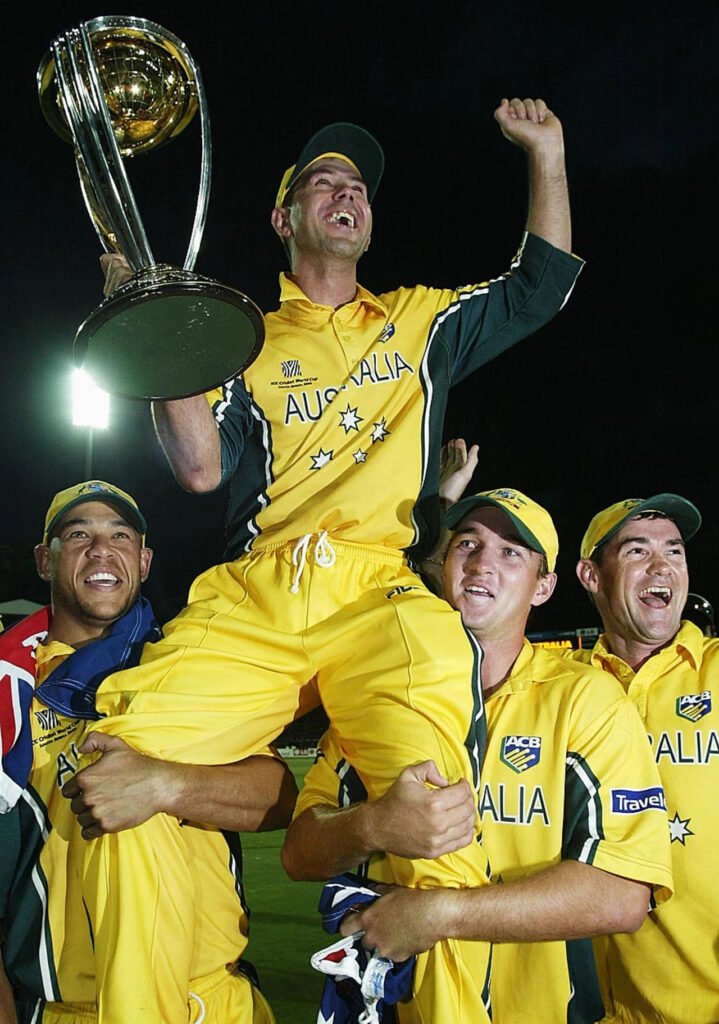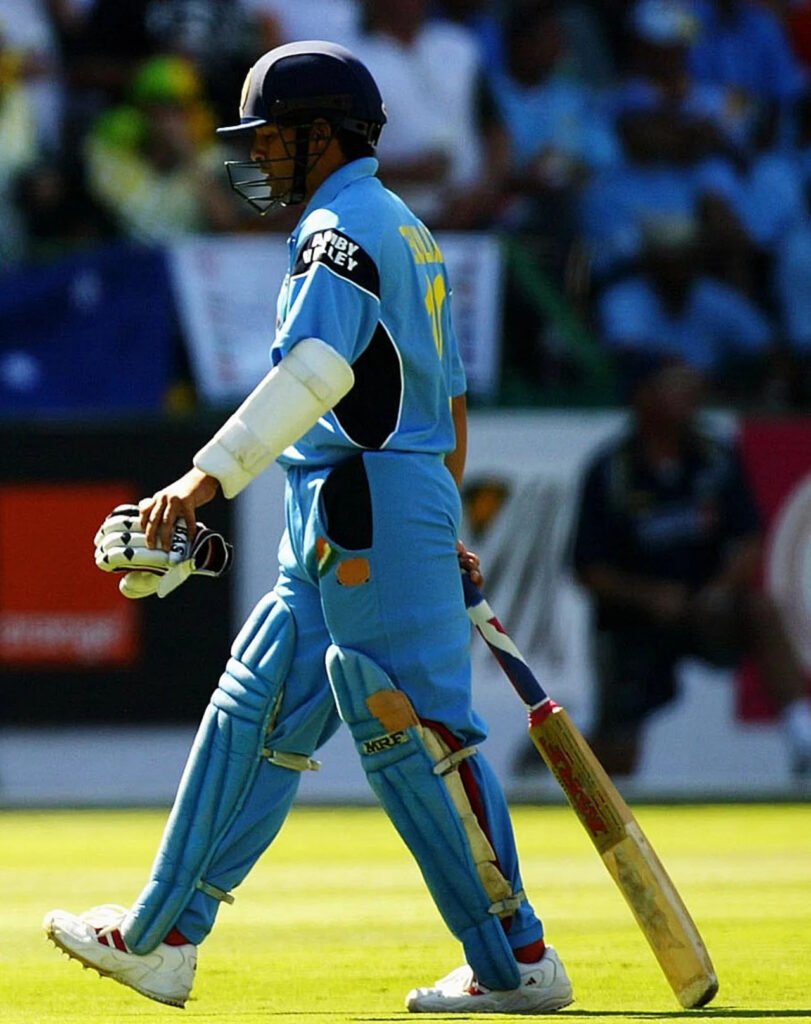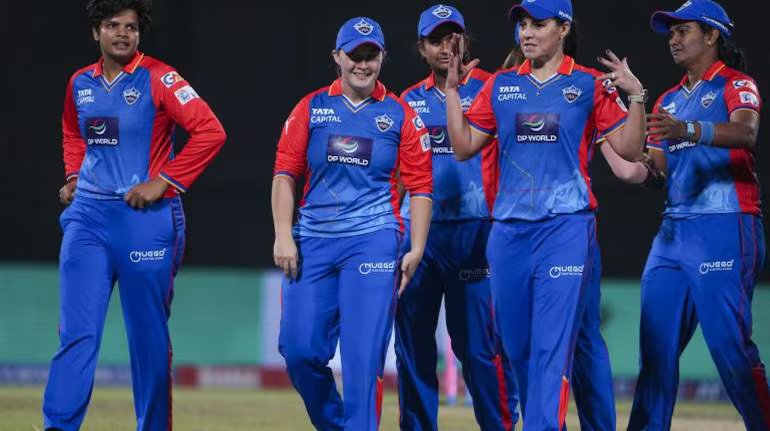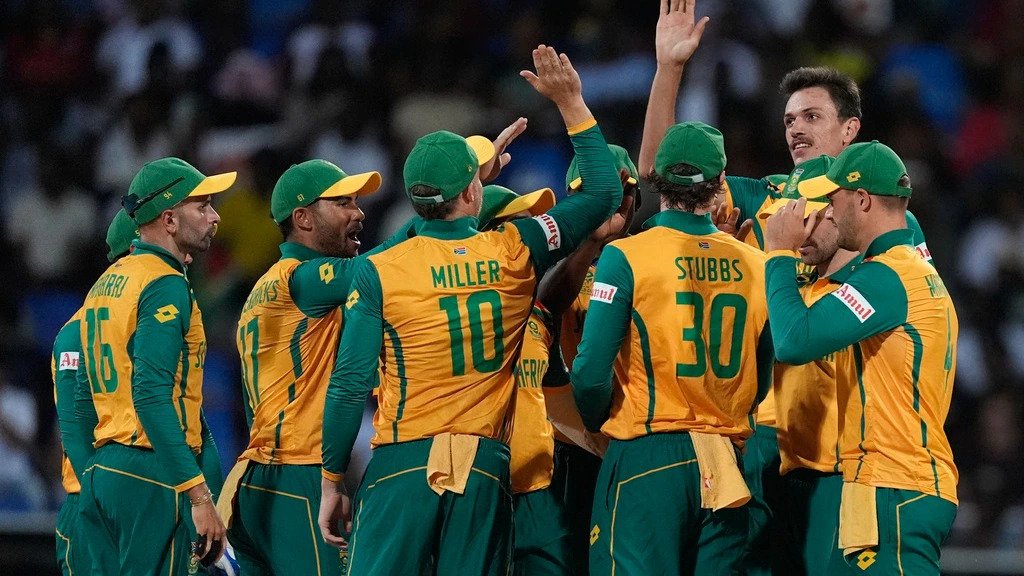2003 Cricket World Cup Final: Australia Triumphs in Epic Clash Against India
Reliving the The 2003 Cricket World Cup Final between Australia and India
The 2003 Cricket World Cup Final (ODI) was played on 23 March 2003 at Wanderers Stadium in Johannesburg, South Africa between The Defending Champion Australia and the 1983 CWC Champion India.
This was the first World Cup matchup between these two sides. It was the fifth World Cup final for reigning champions Australia, and the second after India’s victory in 1983. Australia won the game by a margin of 125 runs, securing their third title.

To get to the final, both teams had to go through three phases. India had only fallen a single match, that being against Australia in the opening round, while Australia remained unbeaten. Australia, captained by Ricky Ponting, came into the match as clear favorites.
Ganguly released a statement on the eve of the game, which would be his 100th ODI as captain of India, stating that his squad was honored to play in the World Cup final. He attributed his inspiration to India’s triumphs in the World Cup in 1983 and the World Championship of Cricket in 1985. He acknowledged Australia as the world’s top team, but he also stated they weren’t “unbeatable”.
Tendulkar was the tournament’s top scorer, and the Indian supporters had high hopes for him, therefore Australia’s major worry was him. Ponting made a suggestion that Glenn McGrath and Lee, his bowlers, might have “special” strategies to limit him. Additionally, he stated that his club “tries to reach another level” in pivotal games.
Australia was participating in their fifth World Cup final. They had previously lost the 1975 and 1996 finals and won the 1987 and 1999 finals. It was India’s second World Cup final appearance. Their lone prior final appearance against the West Indies in 1983 went well for them. Eight World Cup matches between the two teams had preceded the match, with Australia emerging victorious in six of them.
Australia had won every match up until that time in the 2003 tournament; India’s lone loss occurred against Australia in the group stage. While six Australian players had participated in at least one previous World Cup final, it was the first time for all the Indian players.
Also Read: 2015 Cricket World Cup Final: Australia Triumphs Over New Zealand
Also Read: Australia’s Dominance in World Cup 2023
Match Summary
The Wanderers Stadium in Johannesburg hosted the championship game on March 23, 2003. This was the tournament’s fifth match to be held at the venue. In front of 31,779 spectators, the action got underway at 10:00 SAST. According to Wisden Cricketers’ Almanack writer Simon Wilde, the ground is among the “most bountiful” for batsmen.
But because of the thunderstorms that evening, the pitch was wet and the outfield was damp on that particular day. The ground crew had to blast dry air over the pitch that morning due to a brief drizzle. There was a chance of more rain and the sky was gloomy. It was the umpires’ third World Cup Final, David Shepherd and Steve Bucknor’s. The third and fourth umpires, Rudi Koertzen and Billy Bowden, were assigned, respectively. The match referee was Ranjan Madugalle, a former cricket player from Sri Lanka.
Australia Innings
Australia included Damien Martyn back into the team and dropped Ian Harvey, while India stuck with the lineup from the semi-final. After winning the toss, Ganguly chose to field first. Zaheer Khan and Javagal Srinath started the Indian bowling attack. Despite Khan giving up 15 runs in the opening over, the Australian openers scored quickly and forcefully right away in the innings. Gilchrist, in particular, achieved his fifty from forty balls after hitting both Khan and Srinath for numerous runs.
Gilchrist’s rate of scoring was reduced when Ganguly started using his spin bowlers in the tenth over. When Harbhajan Singh returned to bowl in the fourteenth over, Gilchrist (57 off 48 balls) attempted to knock him over the mid-wicket but was caught in the deep by Virender Sehwag after being beaten by the ball’s extra bounce. For the first wicket, the two had scored 105 runs together. In the twentieth over, Harbhajan struck once more, this time dismissing Hayden (37 runs off 54 balls), bringing the total to 125 runs.

Following Hayden’s exit, Martyn came to bat for Ponting, reaching his fifty-six in forty-six balls. Ponting scored more slowly, hitting one four and reaching 50 off 74 balls. He picked up speed after reaching his fifty, hitting two sixes off Ashish Nehra and one off Harbhajan. For the third wicket, the duo scored 100 runs off of 109 balls.
Ponting reached his century in a hurry—it took him 29 balls to reach his second fifty. Australia scored 359 runs for two wickets at the end of the innings; Martyn made 88 not out (from 84 balls; seven fours and one six), whereas Ponting scored 140 not out (off 121 balls; four fours and eight sixes).
As of the 2019 tournament, Australia’s total stands as the greatest by a team in a World Cup final, and Ponting’s innings continues to be the highest individual score by a captain. At the time, Ponting and Marytn’s 234-run partnership was Australia’s best in One-Day Internationals. The bowlers from India gave up 37 more runs. In his final international match, Srinath gave up 79 runs without taking a wicket—the most costly totals of his career.
India Innings
Tendulkar and Sehwag led India to the batting position. McGrath started Australia’s bowling attack. On the fourth ball of the over, Tendulkar blasted a boundary, but the next delivery saw him out of the game. Ganguly and Sehwag came together and scored runs at a run-a-ball till Lee removed Ganguly in the tenth over. The following man, Kaif, was removed in the same over for a total of 46 runs for three wickets. From that point on, Dravid and Sehwag scored runs at a steady pace until play was stopped by rain in the seventeenth over, when the score was 103 runs.
Play resumed, and Ponting introduced spinners Brad Hogg and Darren Lehmann from Australia. Sehwag was more aggressive against both, hitting Hogg for a four and six and Lehmann for three straight fours; Dravid was Sehwag’s backup, pushing frequently for singles. After making 122 (from 111 balls) and 77 (off 77 balls), respectively, they were removed in rapid succession.
India thereafter started to lose wickets on a consistent basis. There were just four players out for single-digit scores: Yuvraj Singh (34), Dinesh Mongia (15), Ashish Nehra (25), and Harbhajan Singh (28). In 39.4 overs, India was bowled out for 234 runs. Australia prevailed by 125 runs in the game. It was their third World Cup triumph overall and their second in a row. Ponting‘s 140 not out earned him the title of Man of the Match.




